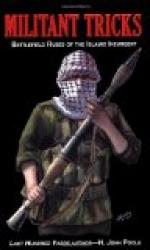“What I meant to tell you was that your father thinks it very unlikely that the money is there yet, and almost impossible that we could find it in any case. But some day when the place is yours you can have it put through a sieve if you choose. I wish I could think you would ever live there, Phil; but I can’t imagine any chance by which you should. I should hate to have you sell it—it has belonged to a Philip Fairfield so many years.”
A week later the boy left his childhood by the side of his mother’s grave. His history for the next seven years may go in a few lines. School days, vacations, the four years at college, outwardly the commonplace of an even and prosperous development, inwardly the infinite variety of experience by which each soul is a person; the result of the two so wholesome a product of young manhood that no one realized under the frank and open manner a deep reticence, an intensity, a sensitiveness to impressions, a tendency toward mysticism which made the fibre of his being as delicate as it was strong.
Suddenly, in a turn of the wheel, all the externals of his life changed. His rich father died penniless and he found himself on his own hands, and within a month the boy who had owned five polo ponies was a hard-working reporter on a great daily. The same quick-wittedness and energy which had made him a good polo player made him a good reporter. Promotion came fast and, as those who are busiest have most time to spare, he fell to writing stories. When the editor of a large magazine took one, Philip first lost respect for that dignified person, then felt ashamed to have imposed on him, then rejoiced utterly over the check. After that editors fell into the habit; the people he ran against knew about his books; the checks grew better reading all the time; a point came where it was more profitable to stay at home and imagine events than to go out and report them. He had been too busy as the days marched, to generalize, but suddenly he knew that he was a successful writer; that if he kept his head and worked, a future was before him. So he soberly put his own English by the side of that of a master or two from his book-shelves, to keep his perspective clear, and then he worked harder. And it came to be five years after his father’s death.
At the end of those years three things happened at once. The young man suddenly was very tired and knew that he needed the vacation he had gone without; a check came in large enough to make a vacation easy—and he had his old dream. His fagged brain had found it but another worry to decide where he should go to rest, but the dream settled the vexed question off-hand—he would go to Kentucky. The very thought of it brought rest to him, for like a memory of childhood, like a bit of his own soul, he knew the country—the “God’s Country” of its people—which he had never seen. He caught his breath as he thought of warm, sweet air that held no hurry or nerve strain;




